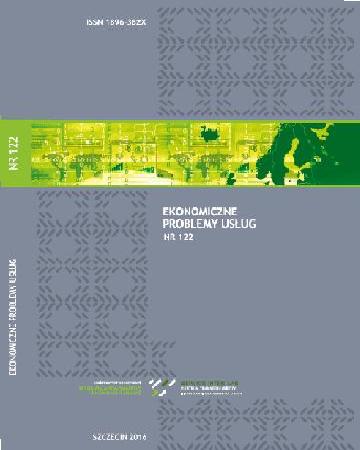
ISSN: 1896-382X
eISSN: 2353-2866
OAI



Issue archive /
nr 117 2015
Telefon komórkowy w komunikacji i edukacji śląskich studentów
(Mobile phone as a tool of communication and education of silesian students - opportunities, threats and prospects of application)
| Authors: |
Katarzyna
Warzecha
Uniwersytet Ekonomiczny w Katowicach |
| Keywords: | mobile phone mobile phone addiction applications students |
| Data publikacji całości: | 2015 |
| Page range: | 11 (797-807) |
Abstract
The purpose of this study is to analyze the possibilities of using mobile phones (especially – smartphones) in the process of education and information and communication by the Silesian students. The study also presents risks resulting from dysfunctional way of using a mobile phone by students (dependence on of talks on the phone, SMS text messages, the phone function). While on the other, the positive side – new opportunities and applications, in particular, smartphones can improve the educational process and information at university level.
Download file
Article file
Bibliography
| 1. | Ha J.H., Chin B., Prk D.H., Ryu S.H., Yu J. (2008), Characteristics of excessive cellular phone use in Korean adolescents, CyberPsychology & Behavior, 11. |
| 2. | Lu X., Watanabe J., Liu Q., Uji M., Shono M., Kitamura T. (2011), Internet and mobile phone text-messaging dependency: Factor structure and correlation with dysphoric mood among Japanese adults, Comput Human Behav. 27(5). |
| 3. | Masiak J., Pawłowska B. (2013), Porównanie nasilenia objawów uzależnienia od telefonu komórkowego u studentów z Polski, Tajwanu i z USA, Curr Probl Psychiatry, 14(4). |
| 4. | Pawłowska B., Potembska E. (2011), Objawy zagrożenia i uzależnienia od telefonu komórkowego mierzonego Kwestionariuszem do Badania Uzależnienia od Telefonu Komórkowego, autorstwa Potembskiej i Pawłowskiej, u młodzieży w wieku od 13 do 24 lat, Curr. Probl. Psychiatry, 12(4). |
| 5. | Pawłowska B., Potembska E. (2009), Właściwości psychometryczne Kwestionariusza do Badania Uzależnienia od Internetu (KBUI), Bad. Schizofr., 10. |
| 6. | Rutland J.B., Sheets T., Young T. (2007), Development of a scale to measure problem use of short message service: the SMS problem use diagnostic questionnaire, CyberPsychology & Behavior, 10. |
| 7. | Warzecha K. (2013), Komputer z dostępem do Internetu jako nieodzowne wyposażenie współczesnych gospodarstw domowych – cele korzystania oraz zagrożenie uzależnie-niem, w: P. Ucieklak-Jeż (red.), „Pragmata tes Oikonomias” cz. 7, Prace Naukowe Akademii im. Jana Długosza w Częstochowie, Częstochowa. |
| 8. | Warzecha K. (2014), Internet w życiu współczesnego studenta. Cele i intensywność korzystania a zagrożenie uzależnieniem, w: Ekonomiczno-społeczne i techniczne wartości w gospodarce opartej na wiedzy, red. J. Buko, Zeszyty Naukowe Uniwersytetu Szczecińskiego nr 809, Ekonomiczne Problemy Usług nr 113, t. II, Szczecin. |
| 9. | http://komorkomania.pl/historiatelefonow/ (2014). |
| 10. | http://www.badanianadschizofrenia.org/dat/files/1016_art._nr_40_Pawlowska2.pdf (2014). |
| 11. | http://hitech.studentnews.pl/s/178/5179-Telefony-i-urzadzenia/4010642-Mobilne-aplikacje-dla-studentow.htm (2014). |
| 12. | http://www.pcformat.pl/Podreczne-pomoce-naukowe,a,1358 (2014). |
| 13. | http://www.cisco.com/en/US/solutions/collateral/ns341/ns525/ns537/ns705/ns827/white_paper_c11-520862.html (2014). |
| 14. | www.itu.int/en/ITU-D/Statistics/Pages/stat/default.aspx (2014). |